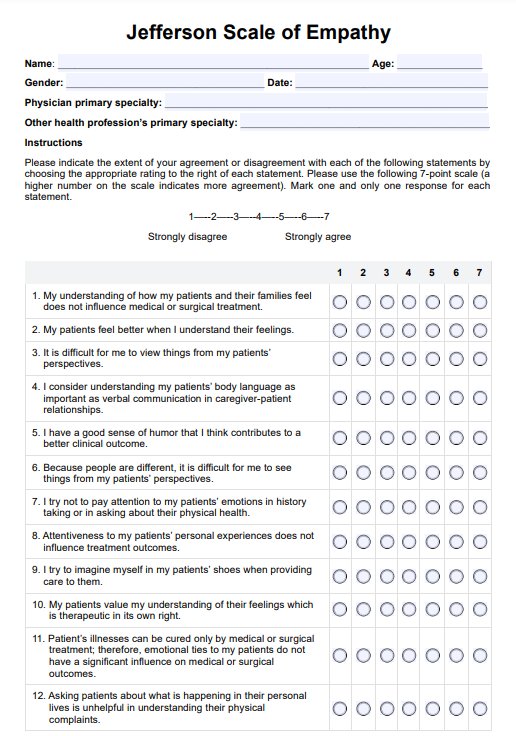The Jefferson Scale of Empathy is primarily used by healthcare professionals, including physicians, nurses, therapists, and medical students.

Jefferson Scale of Empathy
Use the Jefferson Scale of Empathy as a helpful tool in measuring empathy among physicians and other health professionals.
Use Template
Jefferson Scale of Empathy Template
Commonly asked questions
The Jefferson Scale of Empathy can be used to assess the level of empathy in healthcare providers, identify areas for improvement, and measure the effectiveness of interventions to enhance empathy.
The Jefferson Scale of Empathy is used as a self-report questionnaire. Respondents rate their level of agreement with a series of statements, providing a quantifiable measure of empathy.
EHR and practice management software
Get started for free
*No credit card required
Free
$0/usd
Unlimited clients
Telehealth
1GB of storage
Client portal text
Automated billing and online payments











